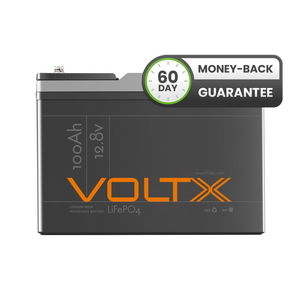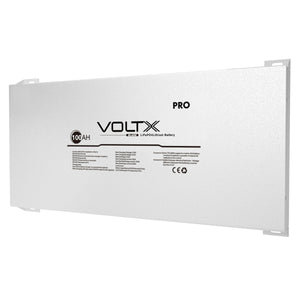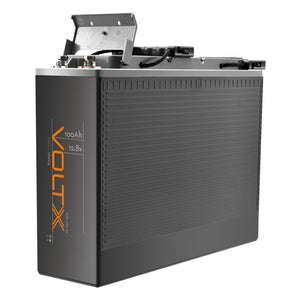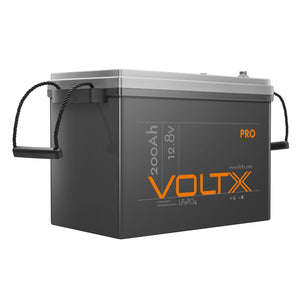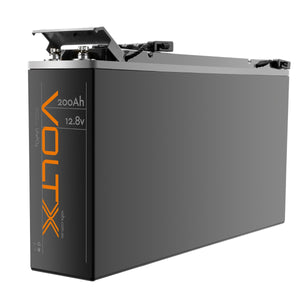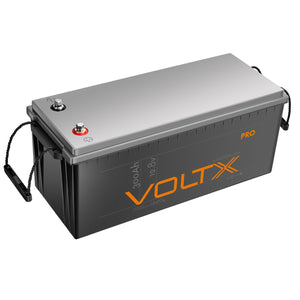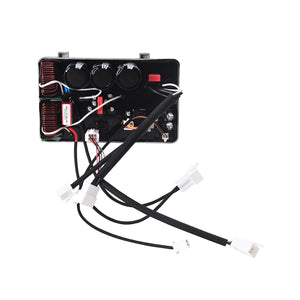If you want to get on the road but still want to enjoy some of the home comforts, you will need an inverter and an inverter battery. An inverter battery is used in combination with an inverter to provide your RV or your campsite or whatever situation you want to be in with a power socket like the one at home. You want this because some of your appliances and devices will not be compatible with a 12-volt battery, so you won 't be able to charge them up or use them when you are in the great outdoors. The inverter battery will be the most important component of your off-the-grid inverter system. If your inverter battery is of poor quality, then your inverter will not be any good either.
How does an inverter battery work?
To understand how an inverter battery works, it 's also a good idea to know how an inverter works. An inverter is a power conversion circuit. It converts direct current (DC) from sources such as a battery to alternating current (AC) electricity output at any frequency and voltage. It ensures the level of voltage is correct so your devices or appliances don 't get damaged. An everyday example of an inverter is the one you use to charge your phone using the energy from your car battery. Outdoors, you can use this product to plug in your appliances and devices and use them as you would at home while running them off an inverter battery. Inverters are great to add to your solar kit too.
An inverter will need a low amount of current consistently over a longer period of time, so the best battery is a deep-cycle battery. Because they have thicker plates inside, they can withstand the complete charge/discharge cycles required from an inverter, whereas a standard car battery would wear out quickly. Standard car batteries have thinner plates, so they cannot sustain the kind of power that comes from an inverter battery.
How to choose the right inverter battery?
There are a number of different types of batteries that can be used as your inverter battery. There are lead acid batteries, including AGM batteries, flooded cell batteries, gel batteries, and lithium batteries.
The biggest and most obvious difference is going to cost. Lithium batteries are the most advanced technology, and the most expensive and flooded cell lead acid batteries will be the most economical. If that 's all you are concerned about, then it 's only going to depend on your budget when it comes to choosing your inverter battery.
However, there are other things to consider when choosing your inverter battery. You will probably want to choose the most convenient and easy-to-use inverter battery so that you can enjoy the wide-open spaces worry-free.
First of all, you want an inverter battery that is low maintenance. In this case, the flooded cell lead-acid battery is the most high-maintenance battery. This is because its cells are not sealed, and it is more likely to be prone to spillage and leaks. In addition, the electrolyte solution needs to be monitored and topped up regularly. While this is not a major hassle, you might want to think about whether you need this extra work when you are on the road and off the grid. Absorbent glass mat (AGM), gel and lithium batteries are more efficient as they don 't have this design problem.
Next, you probably want to consider ease and speed of charging. A gel battery can be very sensitive to overcharging and can be easily damaged if not removed from the charger as soon as charging is complete. On the other hand, an AGM battery charges quickly - in about three hours - and relatively easily, especially if you use a smart charger. Due to their minimal internal resistance, they charge at a lower voltage and accept a larger charge current, which is why they can charge so fast.
There are also issues with where to put your battery. Some batteries put off gases such as hydrogen and oxygen, so they need to be kept in well-ventilated areas. A flooded cell battery is going to be the worst offender in this situation. As space is at a premium, a battery that is compact in size like a lithium-ion battery or that you can install in basically any orientation, like an AGM battery, make sense. Something that is tough and can handle a few knocks is a good choice for your rugged adventure life, so an AGM, which is military in design, comes out well as far as being robust is concerned.
When all these factors are taken into account, an AGM battery will make up the middle ground with both performance and comparatively low cost on its side. Still, a lithium-ion battery is going to be a good performer too.
Order all your energy storage needs; solar batteries, RV batteries, golf cart batteries, marine batteries and more from Outbax, and let us help get you into the great outdoors.
